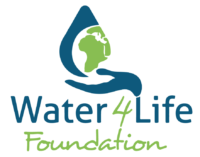Welcome to (CAWE) Climate change, Agriculture, Water, Sanitation and Energy. The purpose of this project is to provide a platform were all stakeholders come together and discuss issues to do with climate change effects, Food security, Water and sanitation and energy. Africa accounts for the smallest share of global greenhouse gas emissions, at just 3.8% as compared to other continents, yet it is the most vulnerable to climate change, with extreme heat, precipitation changes, aridity, sea level rise affecting water resources, agricultural production, ocean and savannah ecosystems, with coastal populations and infrastructure highly vulnerable.
Over 640 million Africans have no access to energy, corresponding to an electricity access rate for African countries at just over 40 percent, the lowest in the world. Access to energy is crucial not only for the attainment of health and education outcomes, but also for reducing the cost of doing business and for unlocking economic potential and creating jobs. Insufficient energy access manifests itself in hundreds of thousands of deaths annually due to the use of wood-burning stoves for cooking; handicaps the operations of hospitals and emergency services; compromises educational attainment; and drives up the cost of doing business. Energy access for all is therefore one of the key drivers of inclusive growth as it creates opportunities for women, youths, children both in urban and rural areas.
Africa’s energy potential, especially renewable energy, is enormous, yet only a fraction of it is being currently employed. Hydro power provides around a fifth of current capacity but not even a tenth of its total potential is being utilized. Similarly, the technical potential of solar, biomass, wind and geothermal energy is significant. While renewable energy will be prioritized, fossil fuels will remain an important part of the overall energy mix, as is the case with several developed economies.
Our continent has 24% of the world’s agricultural land, and 17% of the arable, yet it is the hungriest in the world and a net food importer. Africa imports a third of the cereals it consumes, and 64% of the wheat, according to analysis based on the data from the UN Food and Agriculture Organization (FAO). By comparison, Ukraine which has just 14% of Africa’s arable land was, before the current conflict, able to feed the continent.
Clearly drought and climate change are part of the explanation and are big factors driving the immediate emergency. But the problems with food insecurity go deeper than that: in fact, the main decades-long structural driver of our hunger and poverty is low agricultural productivity rooted in policy failures by international organisations such as the World Bank and International Monetary Fund, and equally in failures to invest in human capital such as education and social protection.
About 800 million people in Africa are facing severe or moderate food insecurity, according to the FAO. Healthy diets remain unaffordable for the low-income bracket. 282 million people were facing undernourishment in 2020, after a 47 million rise on the previous year. The impact of this on the cognitive and psychological development of children and negative economic and health impacts in their lifetime cannot be overstated.
418 million people still lack even a basic level of drinking water service, 779 million lack basic sanitation services (including 208 million who still practice open defecation) and 839 million still lack basic hygiene services.
The objective of CAWE is to discuss the following issues
Low agricultural productivity rooted in policy failures.
- Failures to invest in human capital such as education and social protection.
- Low investment in renewable energy by both public and private sector especially the financial sector.
- Lack of investment in sustainable farming techniques.
- Access to affordable farming imputes like fertilizers and pesticides by farmers and issues like subsidies or public interventions to guarantee prices
- Coming up with policies that reduce risk for farmers and consumers and also provision of markets.
- Increasing quantity and quality of investments in Agriculture by Government and private sector.
- Climate financing to help the continent mitigate and adapt to climate change.Investing in Morden irrigation equipment and technologies
- Issues like increasing production and economic growth through provision of reliable source of energy.
- Issues of food security and reduction in Food waste
Growth of the economy is the main targeted outcome of this project, if the issues of climate change, food security, health, access to clean water and provision of sustainable sources of energy are discussed and solutions found, then they will be an increase on the well being of the people in Zimbabwe and Africa as a Continent hence the need to come up with as many platforms as possible where these issues are discussed and solutions found.
The project will have five main approaches to achieve its goals
- Conducting Indabas, Seminars, Conferences, Breakfast and Luncheons were guests and captains of the industry will be invited to discuss the above issues and find possible solutions.
- Having a Publication or Magazine which will cover four main areas as mentioned above which are Climate change, Agriculture, Water and sanitation and Energy (CAWE). This Magazine will also provide individuals and organizations with a platform to market their products and services.
- Investor’s Desk, where people interested in investing in the above sectors will get information on how to invest including all required documentation.
- Farming Partnership opportunities. Linking farmers and investors for farming partnerships.
- Farming Business Model, Farmers and other stakeholders will have an opportunity to participate in our Farming Business Model.
Water for Life Foundation together with its partners and relevant authorities will be responsible for the monitoring and evaluation of the project. Water for life foundation will also be responsible for the running and management of this project with the support from its sponsors and stakeholders.
Sustainability of this project will be achieved by a constant evaluation and monitoring of the project and also through consultation with all stakeholders involved in this project.
